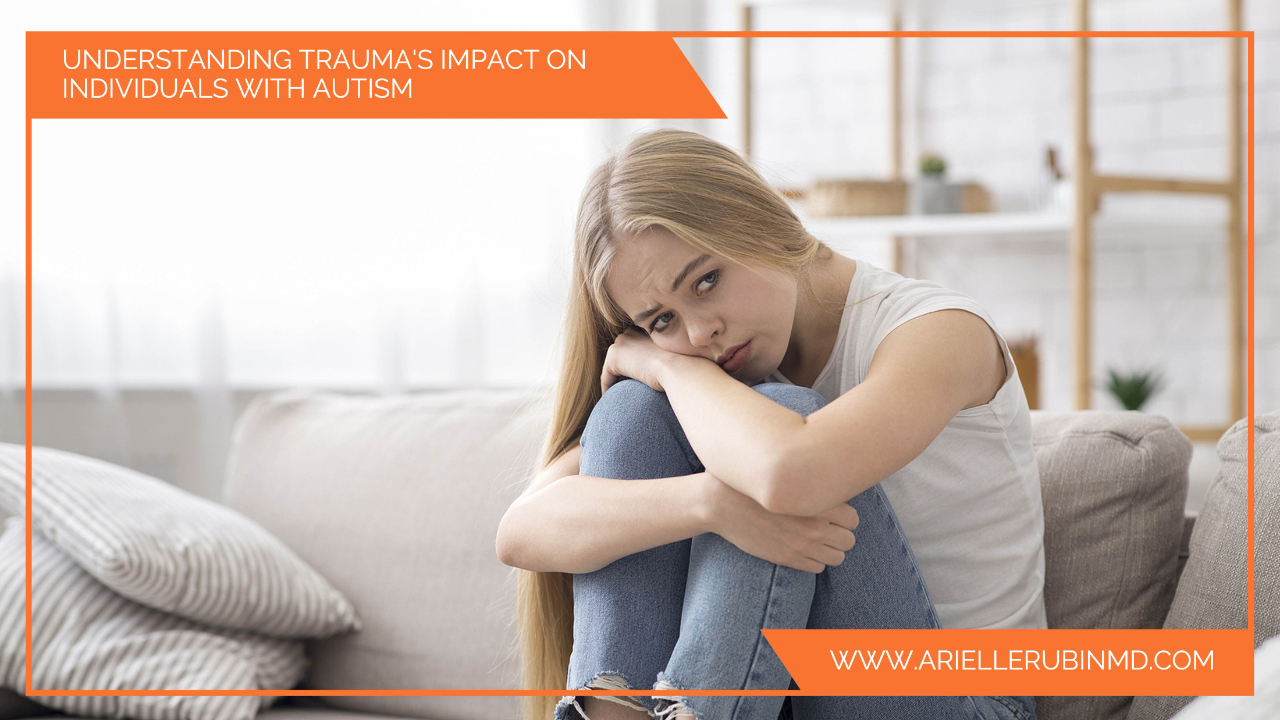Understanding Trauma's Impact on Individuals with Autism
Sep 05, 2023
“There are wounds that never show on the body that are deeper and more hurtful than anything that bleeds.”
Source ― Mistral's Kiss
Autistic people are increasingly speaking out about the traumatic experiences they have endured in many aspects of society. Recent scientific studies on PTSD are now catching up.
An overwhelming amount of research underscores the fact that traumatic experiences leave a profound impact on individuals with autism, often manifesting themselves in ways that may be overlooked or misunderstood by those around them.
Scientific Insights
Individuals with ASD are more likely to experience traumatic events than their neurotypical peers. Sensory activities, communication and social challenges, all heighten the likelihood of exposure to potentially traumatic events. You may wonder, how do these issues play a role in trauma risk?
- Communication and social challenges can be exploited by bullies and perpetrators. Over half of children with ASD report being bullied.[1] These children might exhibit distinct pattern responses to stress and trauma, such as an inclination towards ruminations or repetitive thinking about the trauma. This in turn may increase their risk of PTSD.
- As they develop into their adult years, autistic individuals are also more likely to face workplace discrimination, chronic rejection, sexual assault, child abuse, and neglect. Social and communication challenges often play a role leading up to these issues, again with others taking advantage or minimizing the autistic person’s communication of boundaries.
- There are also higher rates of medical traumas and medical illnesses. For some, sensory issues can cause increased pain or sense of danger during many procedures as well.
- Common research cites that sexual violence affects about 30% of women in the general population. For autistic women, this is between two to three times higher.[2]
Elevated Stress Responses
People with autism spectrum disorder may have unique brain responses to stress and trauma, according to research. A fascinating study published in Autism Research [3]discovered altered patterns of brain connections in people with autism when faced with emotional stimuli—differences in how the processes of events can make individuals with autism more susceptible to trauma and its aftermath.
Communication and Social Challenges
Communication difficulties and understanding nonverbal cues may make it tough to anticipate and respond to potentially harmful situations. As a result, they may have trouble expressing discomfort, recognizing boundary crossings, seeking assistance, inadvertently making them more vulnerable to trauma. They may also be invalidated and not believed after a trauma, which retraumatizes them all over again.
Unpredictability and Routine
As trauma causes routine disruptions, it can make healing and adaptation harder for autistic individuals. That is why it's crucial to create a supportive and understanding environment that recognizes the unique needs and challenges of individuals with ASD.
Empathy and Support
Empathy is essential in acknowledging the emotional and psychological turmoil that individuals with autism may face trauma. Striving to understand specific triggers, anxieties, and communication needs can foster a supportive environment where trauma healing is possible.
It is important to remember that a minor inconvenience for one person could be a monumental challenge for another. By showing compassion and understanding, we can help empower those with autism impacted by trauma. Strategies include listening without judgment, creating a safe space for them to express their feelings, and offering choices when possible.
Conclusion- Understanding and Awareness
To understand how individuals with autism are more susceptible to trauma, we need to approach it with empathy and embrace their unique perspective. We need to create safer and more supportive environments by anticipating potential stressors. We also need to educate ourselves on interventions and trauma-informed care to address the challenges that come with the intersection of autism and trauma.
By acknowledging the unique hurdles faced by individuals with autism spectrum disorder when it comes to trauma, we can lay the groundwork for targeted interventions and support systems driven by compassion.
Sources:
- (Zeedyk SM, et al).
- (Cazalis F, et al 2022).
- (Edmiston et al., 2019)
Get notified when new blogs are posted and get exclusive insights by joining my weekly newsletter!

